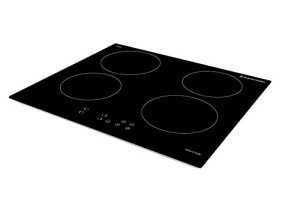Why You're Failing At Induction Hob Features
Energy-Efficient Induction Hobs: A Comprehensive Guide
Induction hobs have emerged as a popular cooking solution amongst modern households, applauded for their speed, efficiency, and safety. As the world ends up being more conscious of energy usage and ecological sustainability, energy-efficient induction hobs are paving the method for cleaner and more reliable cooking methods. This short article looks into the functions, benefits, and considerations of induction hobs, supplying a helpful guide for those looking for to make the switch.
What is an Induction Hob?
Induction hobs work on the principle of electromagnetic induction. Unlike conventional gas or electrical hobs, which heat up the cooktop surface, induction hobs generate heat straight in the cookware. This is accomplished through electromagnetic fields that are produced when an induction coil is stimulated. The benefits of this approach extend beyond effectiveness, as it likewise boosts security and cooking performance.
Key Features of Induction Hobs
Quick Cooking: Induction hobs substantially decrease cooking time compared to standard techniques. They can boil water practically two times as quickly as electrical hobs.
Energy Efficiency: Approximately 90% of the heat produced is moved directly to the cookware, minimizing energy waste.
Accurate Temperature Control: Users can control heat levels with exceptional precision, which is particularly beneficial for fragile jobs like simmering and melting.
Cool Cooktop Surface: The cooktop remains relatively cool, minimizing the risk of burns and making cleaning simpler.
Safety Features: Many induction hobs come geared up with automatic shut-off functions, residual heat indications, and child lock features.
Benefits of Energy-Efficient Induction Hobs
Energy-efficient induction hobs provide numerous advantages that align with a sustainable way of life. Below are several key benefits:
Benefit
Description
Lower Energy Bills
Consuming less energy equates to reduce energy costs.
Ecologically Friendly
Decreased energy intake contributes to decrease carbon emissions.
Boosted Cooking Experience
Quick meal preparation and exact control boosts cooking results.
More Secure Cooking Environment
Minimized danger of burns and fires due to cool cooktop surface areas.
Easy Maintenance
Smooth surfaces are simpler to clean up and keep than standard alternatives.
Factors To Consider When Choosing Induction Hobs
While the benefits of induction hobs are compelling, potential buyers must likewise consider several aspects before making a purchase.
Cookware Compatibility: Induction cooking requires magnetic cookware. Users need to guarantee their pots and pans work (cast iron and stainless steel are normally appropriate).
Preliminary Cost: Induction hobs can be more costly upfront than conventional cooking options. Nevertheless, the long-term savings on energy bills might offset this preliminary investment.
Power Supply Needs: Some induction hobs require higher power supply configurations, which could involve extra installation expenses.
Sound Levels: Some users may find that induction hobs release a humming noise when in use, particularly with particular kinds of cookware.
Choosing the Right Induction Hob
Buying an induction hob can be a significant decision, and comprehending the features and specifications can assist in making an educated choice. Here are factors to think about when choosing the ideal induction hob:
Size
Standard Sizes: Induction hobs can be found in various sizes, generally varying from 30 cm to 90 cm.
Burners: Consider the number of cooking zones you require. Induction Hob Online may have two or three burners, while larger models often have 4 or more.
Features
Touch Control: Modern induction hobs frequently feature touch-sensitive controls, using a sleek and modern style.
Smart Features: Some hobs come with wise innovation that incorporates with home automation systems for push-button control and monitoring.
Timer Functionality: This enables users to set cooking times, ensuring precision without requiring consistent supervision.
Brand Reputation and Warranty
Selecting a trustworthy brand name that offers a strong warranty can be vital for long-term complete satisfaction. Research study consumer reviews and inquire about the producer's service policies.
Energy-efficient induction hobs represent a considerable development in cooking innovation, marrying performance with sustainability. Their fast heating abilities, precise controls, and security features make them an appealing option for any cooking area. While the initial expenses may be greater, the long-lasting benefits of energy cost savings and enhanced cooking experiences present a compelling case for making the switch. As households continue to look for methods to lower their carbon footprint, induction hobs use a practical, modern service.
FAQs
1. What pots and pans is suitable with induction hobs?Induction hobs deal with magnetic materials. Pots and pans made from cast iron and certain types of stainless steel are ideal. Non-magnetic products like aluminum or glass will not work.
2. Are induction hobs safe for kids?Yes, induction hobs are generally considered safe for kids. The cooktop remains cool to the touch, and numerous models include security locks to avoid accidental operation.
3. Can I set up an induction hob myself?It is advised to work with an expert for installation, particularly if your hob needs a higher power supply or complex electrical work.
4. Do induction hobs use a great deal of electrical power?Induction hobs are understood for their energy efficiency; they usually use less electrical power compared to standard electric or gas cooktops since they transform nearly 90% of the energy utilized directly into heat for cooking.
5. How do I clean an induction hob?Cleaning up an induction hob is straightforward. Use a soft cloth or sponge with warm soapy water. Avoid abrasive cleaners which can scratch the surface.
